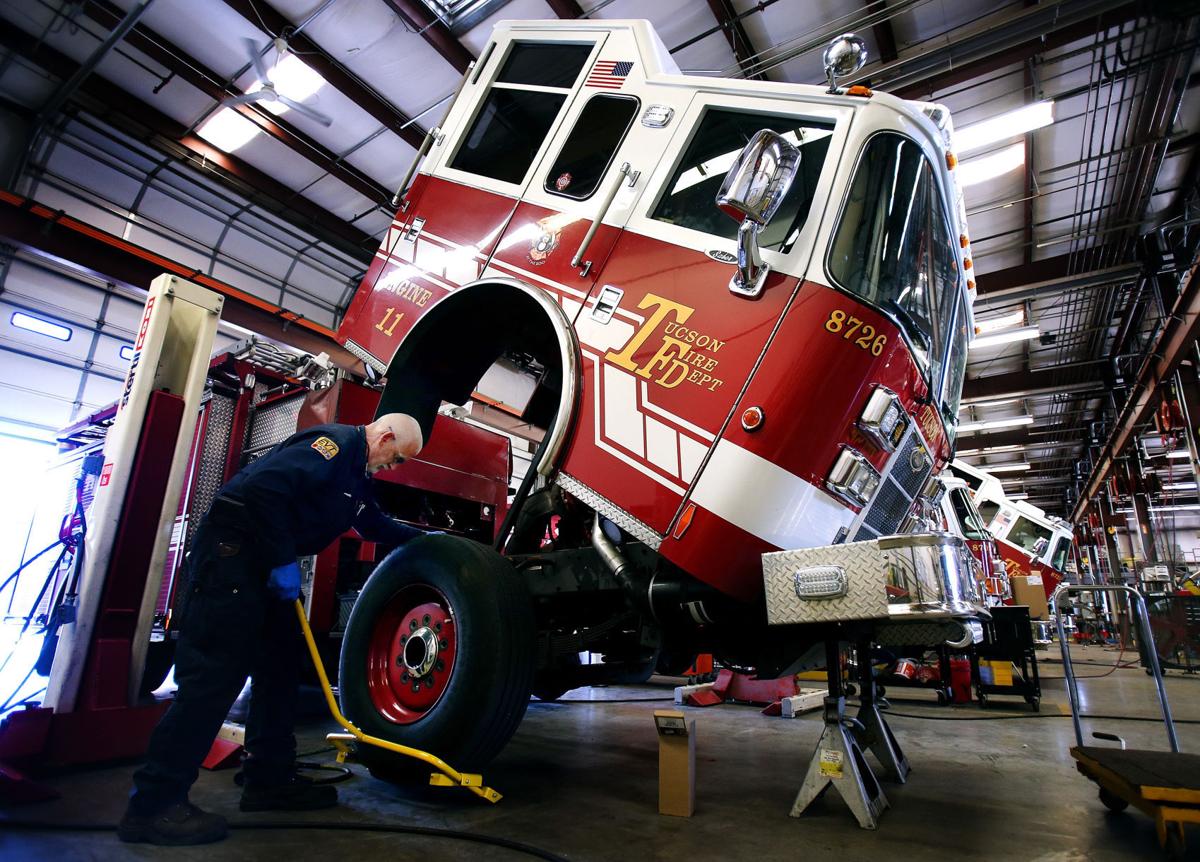Tucson voters have overwhelmingly supported a temporary half-cent sales-tax increase to pay for road repairs and public safety equipment and facilities.
Proposition 101, which is expected to raise $250 million over the next five years, was leading with 62 percent of the vote Tuesday night. The unofficial results showed it leading handily in every Tucson City Council ward.
Turnout was about 26 percent of registered voters. The new tax will go into effect July 1.
Approval will allow the council to raise the city’s sales tax from 2 cents per $1 to 2.5 cents per $1. The temporary tax, which will expire in five years, is expected to cost the average resident about $3 more per month.
Under the terms of Prop. 101, $100 million of the revenue will be set aside for road repairs, with about $60 million used for major roads and the rest for residential streets. The Fire and Police departments would receive $150 million, about $75 million each, for equipment upgrades and capital improvements.
Mayor Jonathan Rothschild said the city’s success with another voter-approved measure — Prop. 409 — was one of the reasons why Tucsonans were willing to back this issue.
In 2012, voters backed Prop. 409, a $100-million bond issue. The city says it has improved nearly 180 miles of streets through the program.
“This is a validation of the city’s work in recent years,” Rothschild said about Tuesday’s vote.
Rothschild continued to answer criticism from opponents of the increase that the $250 million in expected revenues would be spent on frivolous items.
Ambulances and police vehicles are not pet projects, he said.
“I think it is also an example that this community is investing in ourselves,” he said.
But, he said, the city will need to continue to demonstrate that it can spend the money responsibly.
“Now, we have to assure people again that we will do what we say we will do,” he said.
Under the plan, the Fire Department would receive $31 million for pumper and ladder firetrucks, paramedic units, special-purpose vehicles and another $3.2 million to replace nonspecialized vehicles in its fleet. Another $6 million would go to replace outdated equipment, including fire turnout gear, paramedic cardiac monitors and specialized laptops used for medical emergencies.
Nearly $27 million would be used to rebuild five outdated fire stations and another $5.8 million would go to renovate another nine stations.
The Police Department would receive $21 million to replace mostly patrol vehicles, although the city also has plans to replace motorcycles, unmarked vehicles and some specialized vehicles. Another $600,000 would be set aside to upgrade the city’s aging helicopter fleet. It would get $38 million to upgrade facilities, including building a new south-side substation and southeast-side annex.
About $8.4 million would go to replace equipment, including rugged laptops, cameras mounted inside patrol cars and body cameras for officers, as well as body armor.
Roland Gutierrez, the president of the Tucson Police Officers Association, was pleased the community was willing to back the sales-tax hike.
“It is something that is badly needed. Police and fire are going to benefit from this and this means that the community will benefit greatly from it,” Gutierrez said.
Police Chief Chris Magnus tweeted shortly after the results were announced: “Right on! Tucson residents invest in their public safety and roads. Prop. 101 passed. Thank you for this critically needed support.”
The election was largely done through the mail, with the city having seven election sites open for voters to drop off ballots by the 7 p.m. deadline.
Unofficial results show that more than 41,200 Tucson voters backed the measure, compared with about 25,000 who voted against it. A city spokeswoman said there were several thousand ballots still left to be counted, but they would be tabulated later in the week.





